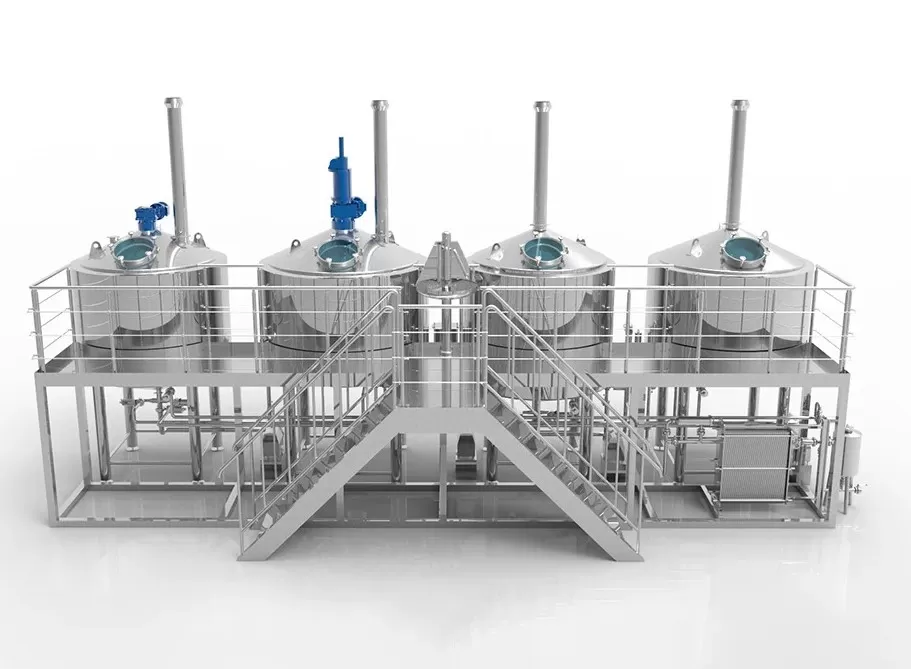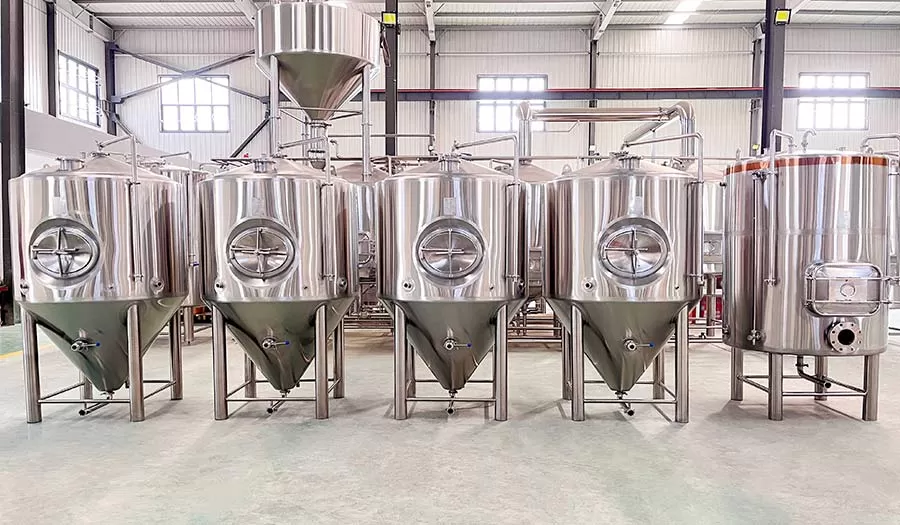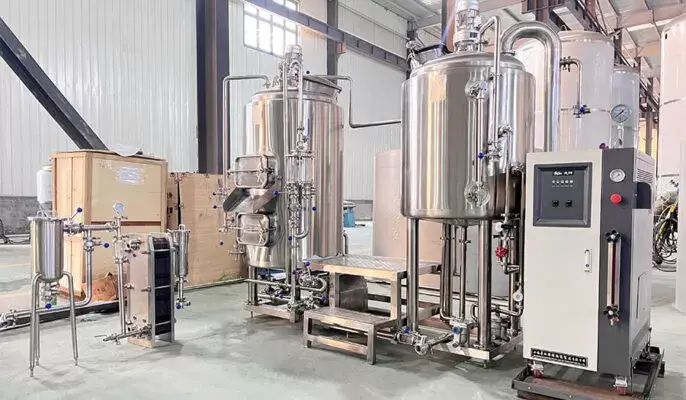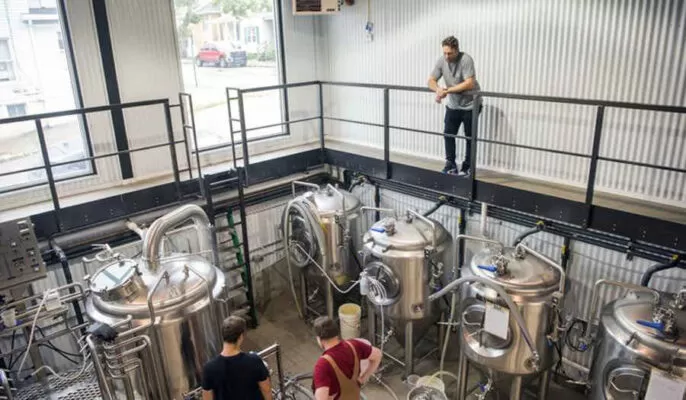the best conical fermenter is a specialized vessel used in the fermentation process of beer, wine, and other fermented beverages. It is designed to improve the fermentation and clarification processes compared to traditional fermentation vessels like open-top tanks or carboys. They are designed for fermenting and conditioning beer in one seamless vessel. The key benefits of conical fermenters include:
- Convenient fermentation and conditioning in a single vessel
- Cone-shaped bottom helps yeast sedimentation and collection
- Integrated cooling jackets for temperature control
- Variable capacity from 3 to 30 barrels
- Built-in sight glasses and sample valves
- Fully customizable setups
Types of Conical Fermenters
For homebrewers seeking to elevate their craft, the transition from simple buckets to conical fermenters is a significant leap. These specialized vessels offer superior control over fermentation, leading to clearer beers, improved flavors, and higher success rates. But navigating the diverse world of conical fermenters can seem daunting. Let’s delve into the different types, exploring their pros and cons to help you choose the perfect vessel for your brewing journey.
Material Matters: Plastic vs. Stainless Steel
The two main contenders are plastic and stainless steel. Plastic fermenters are more affordable and lightweight, making them ideal for beginners. However, they can be prone to scratches, harboring bacteria, and may struggle with temperature control. Stainless steel, on the other hand, boasts durability, ease of cleaning, and superior temperature control. They are the preferred choice for serious brewers and those fermenting larger batches, but come at a steeper price point.
Shape and Size: Finding the Sweet Spot
Conical fermenters come in various sizes, typically measured in gallons or liters. It’s crucial to choose a size that fits your batch size and fermentation space. Remember, leaving headspace for CO2 is crucial. Beyond size, the cone shape itself is key. It allows sediment to settle at the bottom, facilitating easier racking and clearer beer. Some fermenters boast steeper cones, enabling even more efficient separation.
Jacketed vs. Unjacketed: Temperature Precision
For those seeking ultimate control over fermentation temperature, jacketed fermenters are the answer. These vessels feature a double wall through which a coolant like glycol circulates, allowing precise temperature regulation. This is especially beneficial for lagers and other styles requiring strict temperature control. However, jacketed fermenters are significantly more expensive and require additional equipment like a chiller.
Pressure Playgrounds: Exploring Advanced Options
Some advanced conical fermenters are pressure-rated, allowing you to ferment under pressure. This can improve carbonation, suppress oxidation, and create certain beer styles like kölsch. However, pressure fermentation requires additional safety measures and specialized equipment, making it more suitable for experienced brewers.
Beyond the Basics: Additional Features
Many conical fermenters offer additional features to enhance your brewing experience. Sample ports allow for easy gravity readings without disturbing the fermentation, while sight glasses offer a peek at the fermenting wort. CIP ports facilitate cleaning, and spunding valves regulate pressure fermentation.
Choosing the right conical fermenter is an exciting step in your brewing journey. Consider your budget, batch size, desired level of control, and brewing aspirations. With a little research and this guide as your compass, you’ll be well on your way to crafting exceptional beers in your very own conical wonderland.
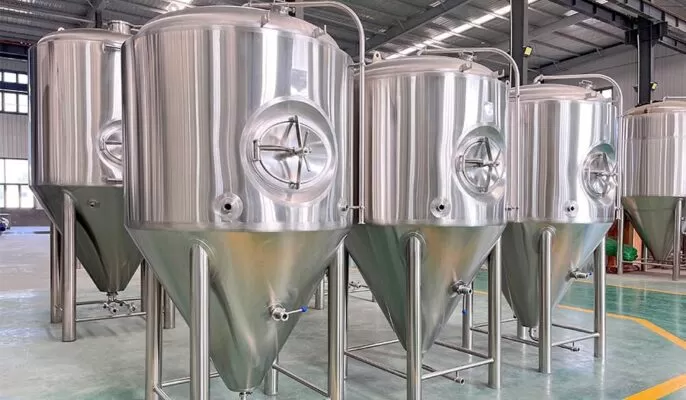
How Conical Fermenters Work
For homebrewers and professionals alike, conical fermenters are more than just fancy vessels. They represent a leap towards cleaner, tastier beers, achieved through the magic of their unique design. But how exactly do these cone-shaped wonders work their fermentation magic? Buckle up, beer enthusiasts, as we delve into the science behind the cone.
First, let’s address the star of the show: the cone itself. Unlike their cylindrical counterparts, conical fermenters feature a narrow bottom that tapers down. This seemingly simple design plays a crucial role in managing yeast and sediment, the unsung heroes of fermentation. As yeast munches on sugars, it produces alcohol and CO2, happily floating around in the fermenting wort. Meanwhile, spent yeast cells and other byproducts, collectively known as trub, settle due to gravity. The cone shape guides this trub towards the narrow bottom, creating a distinct separation between the clear beer above and the sediment below.
This separation is key to several benefits. Firstly, it minimizes the beer’s exposure to the trub, which can impart off-flavors. Secondly, it allows for easier “racking,” the process of transferring the clear beer without disturbing the sediment. Traditional methods often involve siphoning, a delicate dance that risks stirring up the trub and clouding the beer. With conical fermenters, simply open a valve at the bottom to drain the trub, leaving behind crystal-clear liquid gold.
But the magic doesn’t stop there. The cone also facilitates cleaner secondary fermentation, if desired. Some brewers transfer their beer to a separate vessel for this stage, but conical fermenters eliminate this need. Since the trub is already neatly collected below, you can simply add priming sugar for carbonation directly to the fermenter, saving time and minimizing the risk of oxidation.
Beyond convenience, conical fermenters offer advantages for specific brewing styles. Lagers, for example, require precise temperature control. Some conical fermenters feature double walls that allow for the circulation of coolant, ensuring a stable fermentation environment for these delicate brews. Additionally, pressure-rated conical fermenters enable brewers to experiment with styles like kölsch, where fermentation occurs under controlled pressure.
However, it’s not all sunshine and roses. Conical fermenters require more cleaning and sanitization compared to simpler vessels due to their nooks and crannies. They also tend to be more expensive, especially stainless steel models.
Choosing the Best Conical Fermenter
When selecting a conical fermenter, key factors to consider include:
Table 2: Conical Fermenter Selection Guidelines
| Parameter | Details |
|---|---|
| Size and Capacity | Match to your batch sizes and production goals |
| Dimensions | Consider height and footprint limitations |
| Cooling System | Essential for lagers and temperature control |
| Materials | Stainless steel grades, plastic types pros/cons |
| Budget | Wide range from DIY builds to turnkey commercial |
| Customization | Modularity to suit unique needs |
| Certifications | UL, ASME for commercial safety |
Reputable suppliers like Ss Brewtech, Spike Brewing, Blichmann etc. offer great customizability in their conical lines. Modify lids, ports, valves, fittings, legs etc. to create your ideal fermentation vessel.
Table 3: Conical Fermenter Suppliers and Price Ranges
| Supplier | Price Range |
|---|---|
| Ss Brewtech | $800-$4000 |
| Spike Brewing | $900-$2500 |
| Blichmann | $1500-$2500 |
| Keg King | $300-$800 |
| Kegco | $250-$1500 |
Installation, Operation and Maintenance
Proper installation is vital for safety and functionality. Most conicals require a sturdy base or stand to securely hold the heavy stainless steel vessel.
Table 4: Conical Fermenter Installation Guidelines
| Consideration | Details |
|---|---|
| Load-bearing Surface | Reinforced concrete floor, not wood or tile |
| Leveling | Use shims under stand legs to prevent rocking |
| Ventilation | Do not enclose, allow headspace for blowoff |
| Plumbing | Ball valves for flow control, camlocks/TC for transfers |
| Electrical | If cooled, provide adequate power supply |
Operation consists of cleaning/sanitizing, filling with wort, fermentation, transferring beer, and cleaning. Conicals enable closed transfers to minimize oxygen exposure. Maintenance involves replacing gaskets, lubricating parts, and passivating stainless interiors annually.
How to Select the Right Conical Fermenter Supplier
Purchasing a conical fermenter is a significant investment, both financially and for your brewing journey. With a plethora of suppliers jostling for your attention, selecting the right one can feel like navigating a complex maze. Fear not, intrepid brewer! This guide will equip you with the knowledge to find a supplier who aligns with your needs and brewing aspirations.
Understanding Your Needs:
Before embarking on your quest, take a moment to introspect. What kind of brewer are you? A casual hobbyist, a passionate experimenter, or an aspiring professional? This introspection will guide your feature and budget considerations. For example, a casual brewer might prioritize affordability and simplicity, while a serious one might seek advanced features like jacketed walls or pressure capabilities.
Researching Reputable Suppliers:
Armed with self-awareness, dive into the world of conical fermenter suppliers. Online forums, brewing communities, and industry publications are invaluable resources for recommendations and supplier reviews. Be wary of overly promotional content and prioritize independent testimonials. Pay attention to factors like:
- Company history and reputation: Look for established companies with a proven track record of quality and customer service.
- Product diversity: Does the supplier offer a variety of fermenters phù hợp với your needs and budget?
- Material options: Do they offer the material you desire, be it plastic, stainless steel, or something more specialized?
- Additional features: Do they cater to your specific needs, such as jacketed walls, pressure ratings, or specific fittings?
- Warranty and support: Does the supplier offer a comprehensive warranty and readily available customer support?
Engaging with the Supplier:
Don’t hesitate to contact the suppliers directly. Ask questions about their products, warranties, and support services. Gauge their responsiveness and professionalism. A reliable supplier will be happy to answer your questions and demonstrate their expertise.
Beyond the Basics:
While price and features are crucial, consider additional factors. Does the supplier offer easy ordering and payment options? Are they geographically convenient for shipping or potential returns? Do they participate in industry events or brewing communities, demonstrating their commitment to the craft?
Making the Final Choice:
Ultimately, the right supplier is the one who inspires confidence and resonates with your brewing values. By understanding your needs, conducting thorough research, and engaging directly with suppliers, you’ll be well-equipped to choose the perfect partner for your conical fermenter journey. Remember, this is an investment in your brewing future, so choose wisely and ferment on!
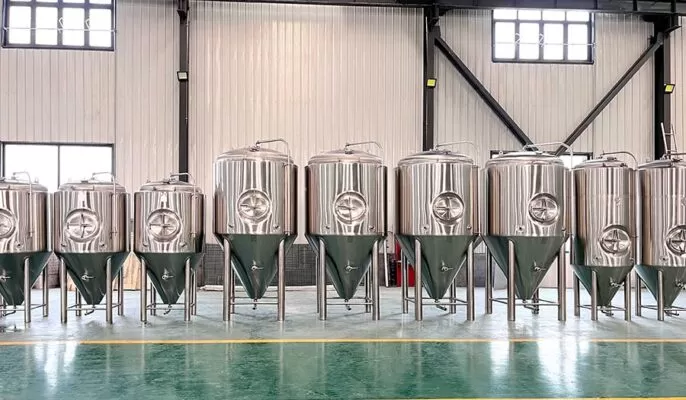
Pros and Cons of Conical Fermenters
Table 6: Conical Fermenter Advantages and Disadvantages
| Pros | Cons |
|---|---|
| Efficient yeast harvesting | Expensive upfront cost |
| Precise temperature control | Heavy when full, hard to transport |
| Minimized oxygen exposure | Require stands/reinforced floors |
| Single vessel for all steps | Smaller capacity than rectangular fermenters |
| Compact footprint | Horizontal models lose headspace |
| No separate bright tank needed | More moving parts require maintenance |
FAQ
What size conical fermenter should I get?
Choose a size at least 20% larger than your target batch volume to allow sufficient headspace. For homebrewers, 7-15 gallon conicals are common starting sizes.
What are conical fermenters made of?
Most are stainless steel – either 304 or higher 316 grade for brewing. Some suppliers offer plastic polyethylene conicals as a budget option but have size limitations.
Is a conical fermenter worth it?
For commercial breweries and dedicated homebrewers seeking quality and consistency, conicals are absolutely worth the investment over buckets or carboys. Their benefits outweigh the higher initial cost over time through process efficiency and automation.
Can you condition beer in a conical?
Yes, one major advantage of conicals is the ability to ferment, condition, carbonate and serve beer from a single vessel without transferring. The cone-bottom even allows rotating yeast collection while conditioning the beer.



